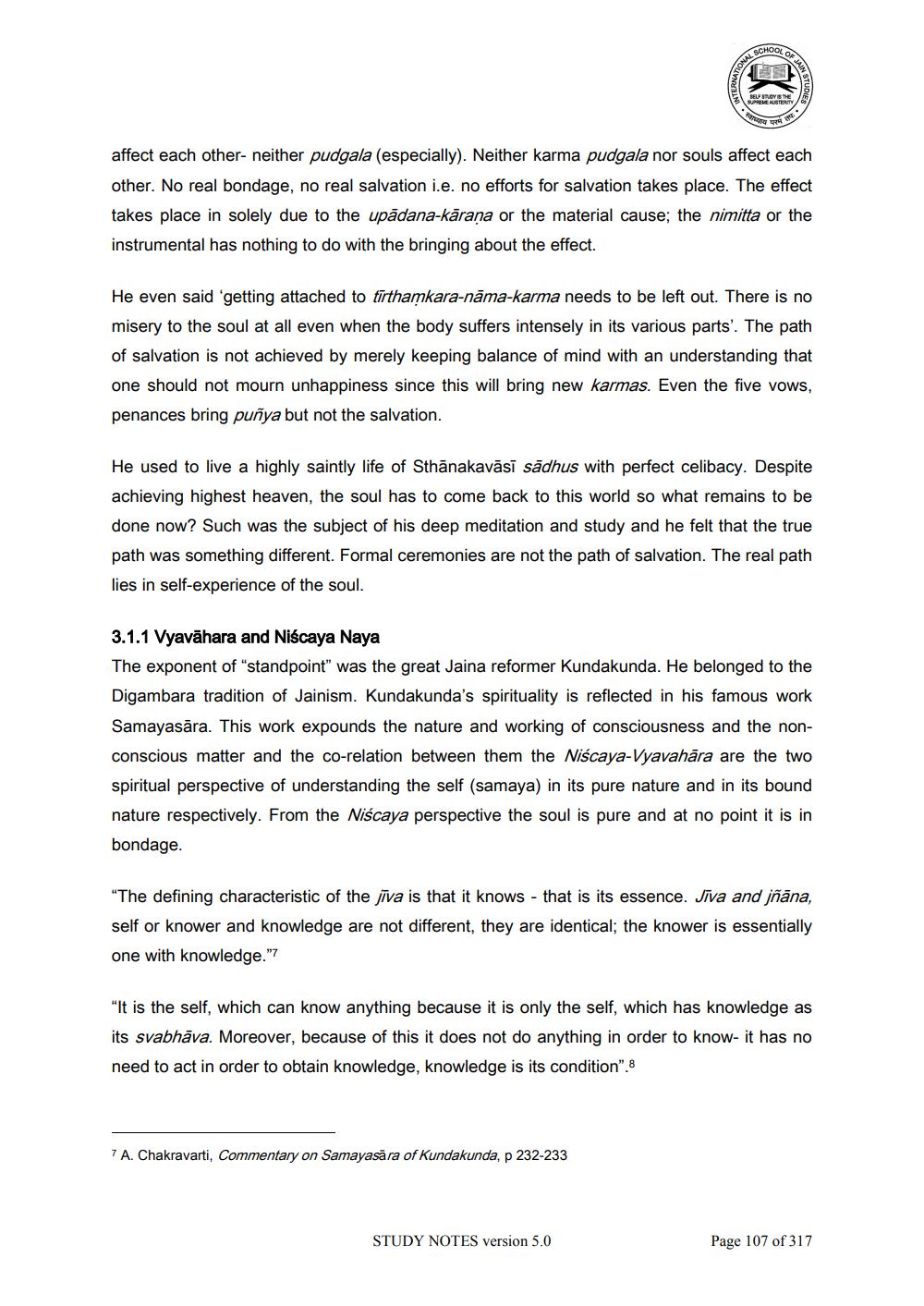________________
affect each other- neither pudgala (especially). Neither karma pudgala nor souls affect each other. No real bondage, no real salvation i.e. no efforts for salvation takes place. The effect takes place in solely due to the upādana-kāraṇa or the material cause; the nimitta or the instrumental has nothing to do with the bringing about the effect.
He even said getting attached to tirthamkara-nāma-karma needs to be left out. There is no misery to the soul at all even when the body suffers intensely in its various parts'. The path of salvation is not achieved by merely keeping balance of mind with an understanding that one should not mourn unhappiness since this will bring new karmas. Even the five vows, penances bring punya but not the salvation.
He used to live a highly saintly life of Sthānakavāsī sādhus with perfect celibacy. Despite achieving highest heaven, the soul has to come back to this world so what remains to be done now? Such was the subject of his deep meditation and study and he felt that the true path was something different. Formal ceremonies are not the path of salvation. The real path lies in self-experience of the soul.
3.1.1 Vyavāhara and Niscaya Naya The exponent of "standpoint" was the great Jaina reformer Kundakunda. He belonged to the Digambara tradition of Jainism. Kundakunda's spirituality is reflected in his famous work Samayasāra. This work expounds the nature and working of consciousness and the nonconscious matter and the co-relation between them the Niscaya-Vyavahāra are the two spiritual perspective of understanding the self (samaya) in its pure nature and in its bound nature respectively. From the Niscaya perspective the soul is pure and at no point it is in bondage.
“The defining characteristic of the jīva is that it knows-that is its essence. Jiva and jñāna, self or knower and knowledge are not different, they are identical; the knower is essentially one with knowledge."
"It is the self, which can know anything because it is only the self, which has knowledge as its svabhāva. Moreover, because of this it does not do anything in order to know- it has no need to act in order to obtain knowledge, knowledge is its condition". 8
7 A. Chakravarti, Commentary on Samayasära of Kundakunda, p 232-233
STUDY NOTES version 5.0
Page 107 of 317




